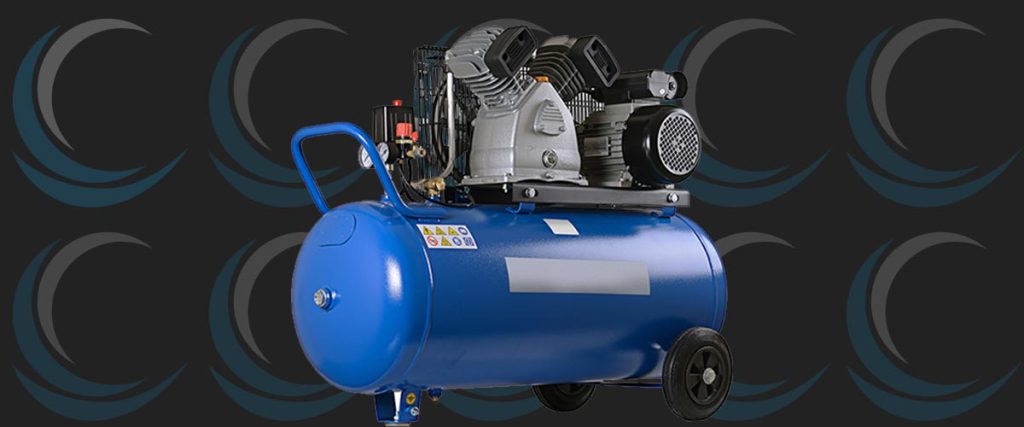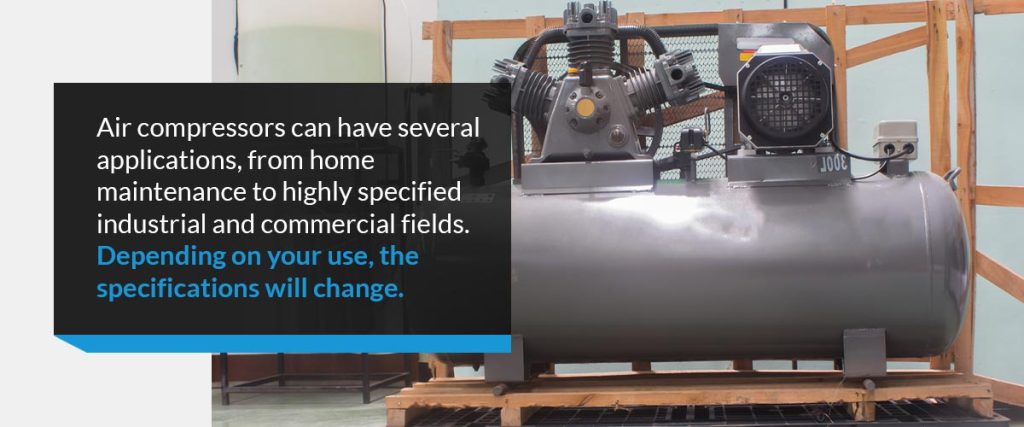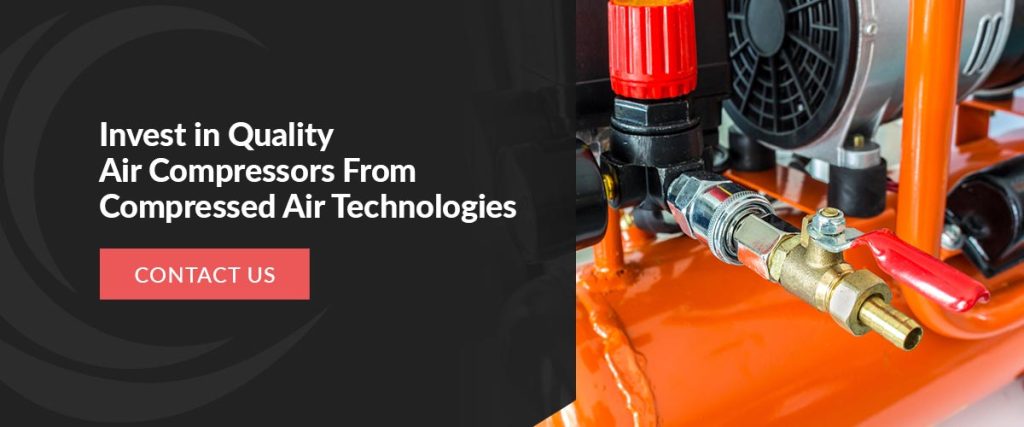

If you are searching for an air compressor, it can be challenging to know where to start. With so many different specifications and model differences, you might not know what you should be looking at and what features are the most valuable. Here are some tips for buying an industrial air compressor to help set you in the right direction.
Many factors play a role in choosing a suitable air compressor. An industrial air compressor buyer’s guide can help determine what variables to pay attention to.
When determining what to look for in an air compressor, consider its functions and how you plan to use it. You can find stationary and portable air compressors, allowing you to find one that best meets your needs. Stationary options will have permanent installments, allowing them to become constant fixtures in your spaces.
However, if you need to power different tools at various sites, you might need a portable option. Portable air compressors can help you easily move to necessary locations and consistently power your equipment.
While functionality and purpose are essential, think about where you will use your air compressor. Many people use their portable air compressors outside, so you will also need weather protection to keep it safe from the changing conditions it will work through. Outdoor options can ensure you preserve your equipment’s life span, including your power sources.
Outdoor air compressors can be beneficial to people looking for increased durability. Many outside environments have harsh conditions, which can affect your equipment. An outdoor air compressor can help provide this equipment with better temperature, water and rust resistance.
As you explore different air compressor models, pay attention to the available power sources. Air compressors can draw power from electricity or diesel. Electric air compressors are excellent if you are looking for a tool that requires less attention and maintenance. However, you will need a constant power source for them, which might impact where you can bring or install this equipment.
Diesel can be an excellent option for portable air compressors or those that will have less consistent access to electricity. Diesel allows you to apply your air compressor where you need it while ensuring its functionality. The trade-off here is that this option requires more maintenance to keep it functioning at its best.
When searching for an industrial air compressor, you will find various specifications and measurements about your model’s functionality and capabilities. Cubit feet per minute measures how much airflow your compressor can make in a given time, helping you understand how it will function before purchasing it.
You need to calculate CFM mathematically, and there are different ways to do so. Depending on the method you use, you can get different results. Some calculations, like displaced, consider temperature and friction, while others forgo this information.
Because you use air compressors to power your air tools, you must select a model that meets their functionality. Pounds per square inch is a measurement that tells you how much pressure it can generate, which will help you understand how well it can work with your equipment. You should select a PSI that is the same or greater than the highest-rated piece of equipment you need your air compressor to power — this system can help ensure your compressor will be compatible with all your other tools.
Depending on your purpose, you might need a higher or lower voltage capacity for your air compressor. You can choose between air compressor models with a single- or three-phase connection, each accommodating different voltage levels and energy capacities.
A single-phase connection runs electricity through one conductor, while a three-phase connection carries it through three. The three-phase approach allows air compressors with those systems to handle larger voltage levels.
Your air compressor’s tank size will determine how much pressurized air it can store and have available as it works. Larger tanks are more efficient because they have to work less to produce the same amount of air, though smaller tanks make it easier to store and fix your air compressor into spaces.
You can choose various tank orientations to help you fit your air compressor into your facility — horizontal configurations are ideal if you have space to keep your equipment, while vertical tanks are an excellent option for those with less space.
Air compressors can come with various specifications to help you find the right system for your needs. While the above specs might have prevalence when determining between models, these features can help provide additional care for your air compressor. Here are some other features to consider looking for.

Air compressors can have several applications, from home maintenance to highly specified industrial and commercial fields. Depending on your use, the specifications will change. Understanding what you can expect from different applications with an air compressor buyer’s guide will help ensure you get the right equipment for your needs.
Homeowners can invest in air compressors to help them with home projects and improvements by powering their tools and equipment. Home air compressors tend to be smaller, single-phase models because their application requires less power than other models. Noise reduction can be helpful when you have family members and neighbors to consider.
Commercial air compressors help contractors and businesses power their equipment. Operations and processes might depend on reliable power and durable tools, making air compressors excellent options. Commercial air compressors often have more advancements and capacity than home alternatives to handle larger applications but are still single-phase. The higher capacities can help improve efficiency and save money for businesses.
These types often require more durable and portable options for moving and switching locations or job sites.
Manufacturers and other industrial companies can benefit from industrial air compressors that can keep their facilities and equipment functioning at their best. Because they require more power and capabilities, they are usually three-phase models with larger tank sizes to increase their functionality. While you might not need to use them outdoors with this application, outdoor models can help boost durability in harsh facility environments.

While exploring tips for buying an air compressor can help you determine the specifications you need, finding the best equipment distributor is vital. Compressed Air Technologies is a respected distributor that can help pair you with the right air compressor model for your needs. Additionally, we offer warranties and preventive maintenance services to help boost your air compressor’s quality and life span.
Contact a Compressed Air Technologies representative today and discover how we can help you navigate the many models and specifications to find a suitable air compressor.